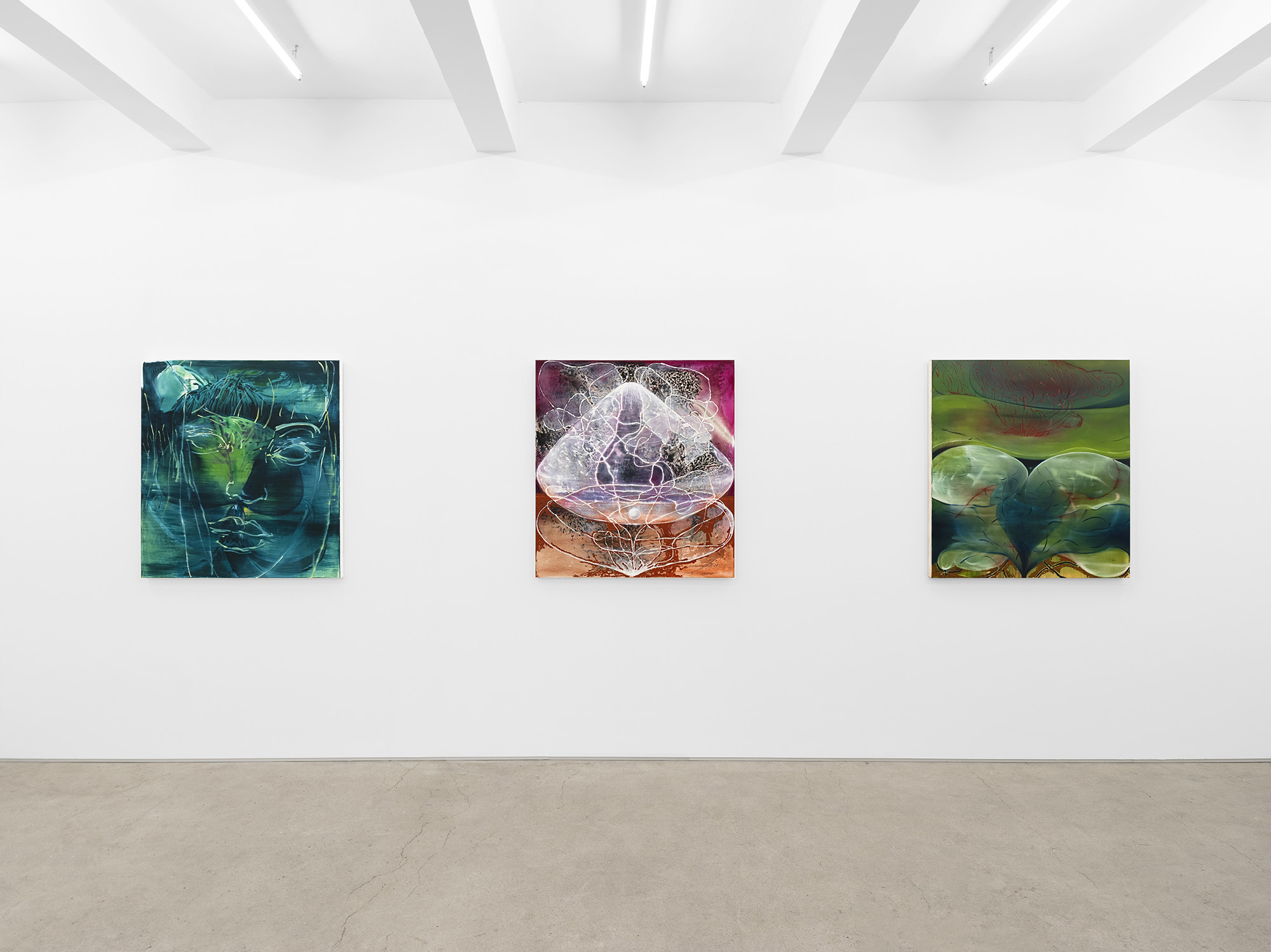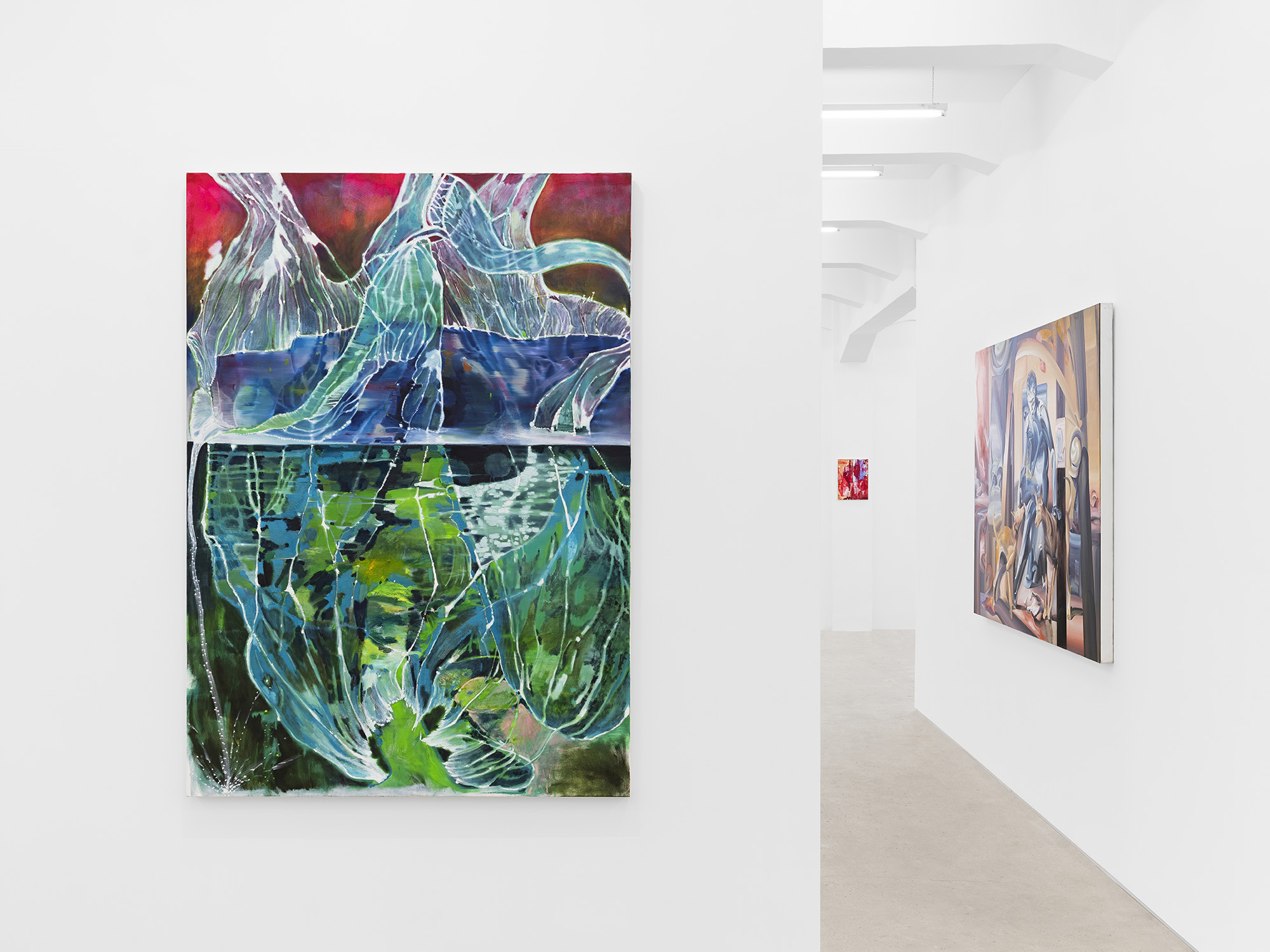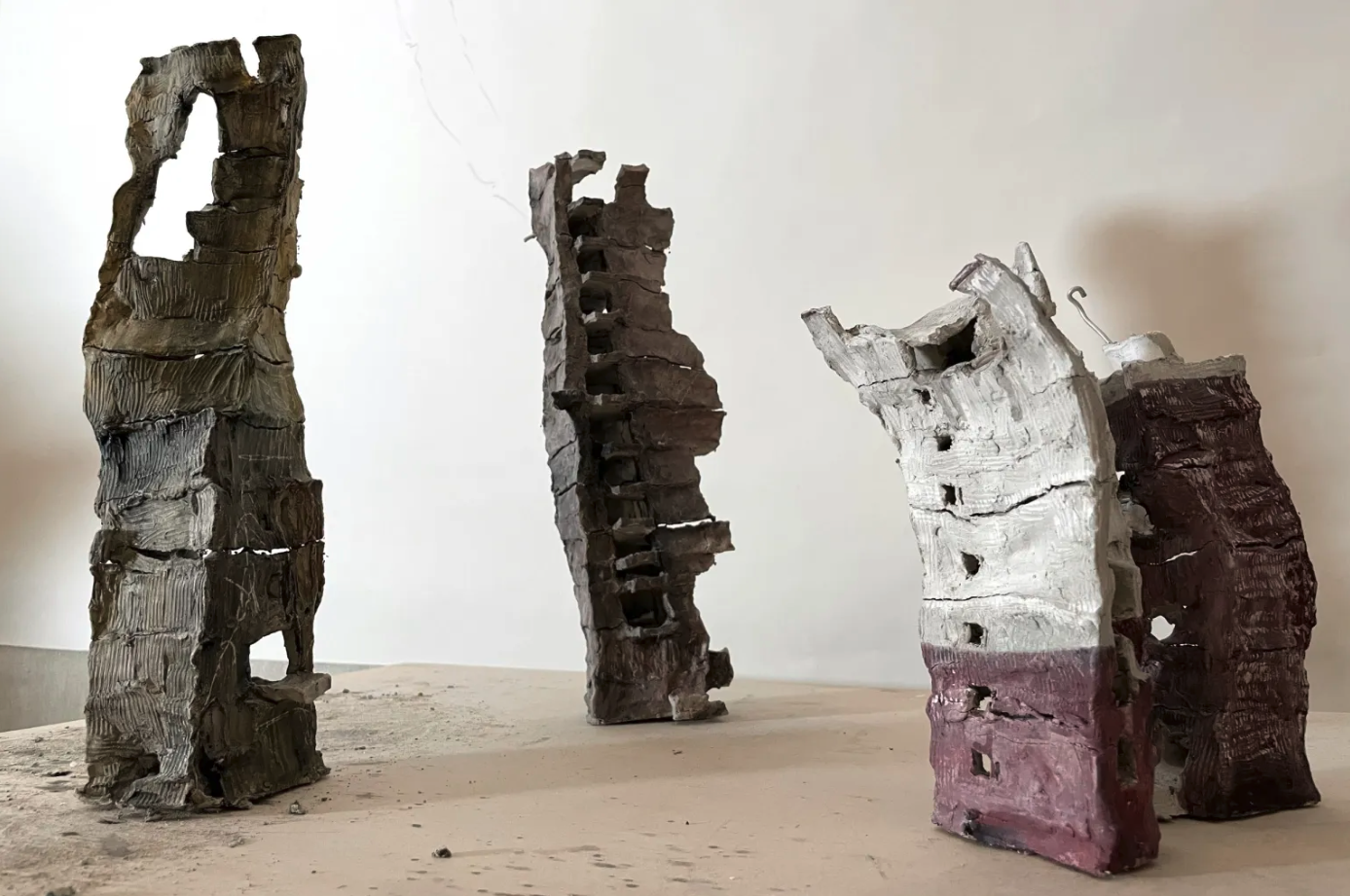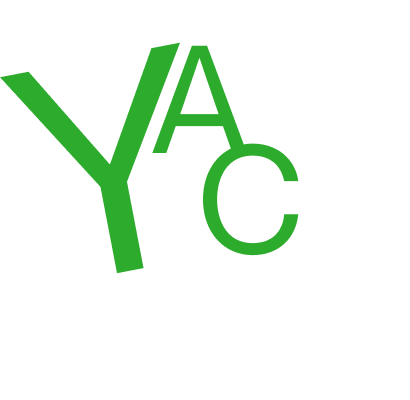Li Heidi 李黑地
Interview by Jessica Wan
-
Published in April 2022
-
Can you briefly describe the piece you are making now and talk about the motivation behind it?
Right now I am working on a painting. I don't know what it is yet, so you know, like I just had the painting for a while now. It's mainly greenish and then it's like a flower coming out in the middle and then I made this giant apple shape where I covered it with a lot of white. And now the paint is mostly white and then now it is like a little prayer. I'm still trying to figure out what it is.
I remember this painting feels like a very painful long journey of sacrificing, erasing every vision. I'm quite excited about how it comes out.

Installation shot of Self Dismiss, 2022 at Gallery Vacancy, Shanghai. Courtesy the artist.
Let’s talk about your works in the recent exhibition Self Dismiss at Gallery Vacancy, Shanghai and The Glass Bead Game at Mamoth Gallery, London. What are they focused on?
They are all thinking in the way of fictioning. Despite being all “fantastical”, the subject matters are all really real to me. Most of the works at Gallery Vacancy are inspired from my summer obsession with this classic fantasy novel called Strange Tales from a Chinese Studio (聊斋志异) by Pu Song Lin. I really loved the jokes there and then I watched one of the movies inspired from that titled Painted Skin (画皮). But when I watched that movie, I started to realise that the original story is completely different from the movie.
In the movie, the mistress becomes a little frog that saves the couple. But in the original story, the mistress is a terrible ghost and casted a spell that the couple had to beg a homeless guy to spit in their month to save their own lives. The spit came out into the wound of the husband and into the husband's chest and turned into his heart. That’s how the husband was revived. This is an especially ironic metaphor as it depicts a cheating man who has a heart made of the spit of a homeless person. I thought it was interesting finding these things from movies to literature that are mysterious and fantastical yet speak about something more true than life itself.
‘Strange Tales from a Chinese Studio’ (聊斋志异) is such an amazing book because it reveals a lot about, I think, about human desires and curiosity, what that means and what how that manifests into certain creatures.
Yeah, and there's such an Eastern way of thinking about desire and sex that is hinted and held back. It’s almost like you hold on to it in the sense of painting it, timing it, and then exploding it. I don't think these stories about ghosts and the intellectuals come from a place of repression in Asian cultures. It’s the oppsoite, it comes from understanding sex as something that has the power to restrain itself like a kind of play to control and direct desires into another world.
Certainly. I feel like there is this understanding in the in Eastern philosophy of looking at residing as a form of attack. You know, just like the Yin and Yang.
That's exactly what I wanted to say. Actually, in my dissertation I studied the link of Yin Yang (太極) to contemporary queer culture. I have lived in the West for almost 10 years now and only recently I started to think about sex in a non-Western perspective becasue I feel like this made more sense to me.

Installation shot of Self Dismiss, 2022 at Gallery Vacancy, Shanghai. Courtesy the artist.
You mentioned being a teenager in China having a difficult time fitting into societal expectations. How have these experiences impacted you and your practices?
I didn't fit in with the tight studying schedules and academic expectations of the schools in China, but luckily I had a lot of friends around me. It was so intense and then only later I discovered that I was dyslexic.
In school I would just be really slow at taking tests and writing stuff and I will take triple the amount of time compared to my peer group. So I really hated school, but I also was kind of good at school in some way, for example, I would get a good score on this one test and the next time I get nothing. Everything was really stressful and I didn't have any time to do anything else and I was allowed to do nothing else but study.
When I was supposed to be doing homework, I would draw a lot because I have no freedom and that is how I feel free. That's also why I like the things I draw and I started to imagine a lot of things for myself to live in. Drawing then became a form of escape and there's a fictional world that I think of as my reality.
That made a lot of sense to me of how you turn inward into drawing and create a world of your own that sits outside of the conventional. Did you get to have any lessons on drawing? How did you decide to become an artist?
We had drawing lessons on classical statues such as David by the Italian artist Michelangelo. At the age of 15, I moved to the US to attend high school and eventually went to an Art School. I was so young that making graphics and marks saved me from being really sad inside. Later, this turned it into a life that I can't live without. I ended up spending most of my time making all sorts of drawings and that's when I realised that I don’t want to study other subjects anymore. My pathway to become an artist is kind of natural as I simply think I prefer to do art.

Pillar of the Motherland, 2021, air-dry clay objects.
That’s fascinating. So you know your path because you don't want to do anything else and it becomes almost an obsession. What kind of advice would you then give to young creatives who felt like their voices were forgotten or not being heard at the early stage of their career?
I don't know if I'm in a position to give advice because I don’t have everything figured out myself. But what really works for me is that I don't really care about whether other people hear my voice or not. I care about those internal things in my own head. It's like a practice for me. Of course I do try to impress people at times with my art, especially in schools to receive reviews and grades.
What I really wish I knew was that I could just do things that speak to myself and always let myself be emotional with my work and to not separate my emotional state from the painting. Sometimes you feel like painting has to be a certain way to be successful because you see all the things in the gallery, in the market and you want to become them. I think that's a really scary thing. Sometimes you just have to shut yourself off in a place to make things that are just yours.
Could you then say that staying true to oneself is very important?
Yeah, but it is also hard to know what is the truth. We always say things like staying true, but no one really knows what is really true. I think it's the struggle itself that we should stay with, to find the truth and that is the journey and that is the practice itself.
I am interested to know whether this links back to your outlook towards life and your process of making. For example, you develop a painting without any pre-planning which means you start from the feel, imagining a story and then go with the flow of creation. Do you see the whole painting as a continuous process where you constantly erase and remake and re-envisioned?
Absolutely! I think it's my way of making a film or writing a novel. Just in the medium that I'm comfortable with at times.
That’s thought-provoking because I think too often in our world results are valued more than the process. Last question, any exciting projects that you want to share?
In terms of medium, aside from paintings, I think it's time to make some sculptures. I have some shows planned but it feels weird to talk about it before the works are being made. But yeah there will be shows in London, one of them being my graduate showcase with the Royal College of Arts in summer, so stay tuned!
-
London-based artist 李黑地 Li Heidi’s (website access code: 7777) practice deals with the complexities of image-making by creating raw and compelling visual stories without pre-planning. In her sensorial works, Heidi takes references from colour palettes and freeze frames of Chinese cinema, everyday objects, and memories of being a teenager in China while working in Europe.
-
Jessica Wan is a Hong Kong-born, London-based independent curator and writer whose practice focuses on an inclusive and interdisciplinary approach to exhibition-making at the intersection of art and new technologies.
-
If you like this why not read our interview with Charlotte Dawson.
-
© YAC | Young Artists in Conversation ALL RIGHTS RESERVED
